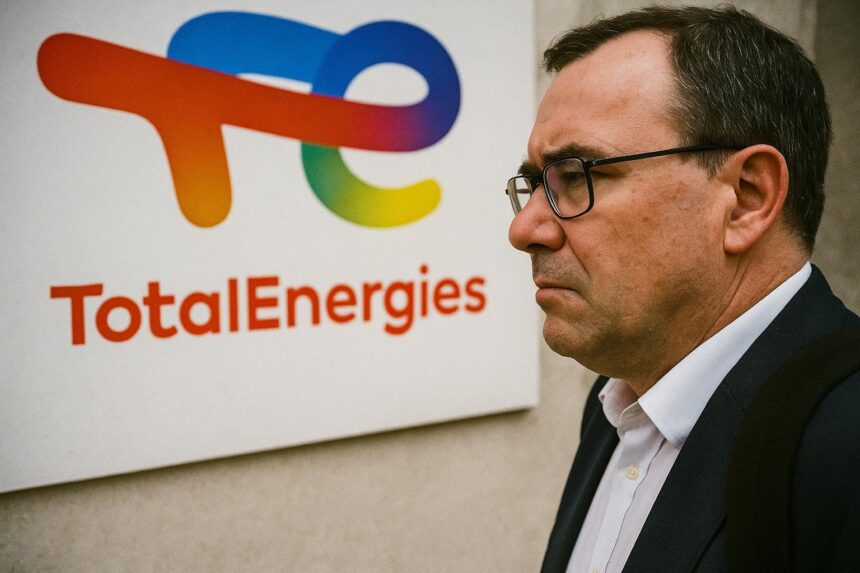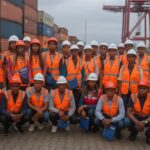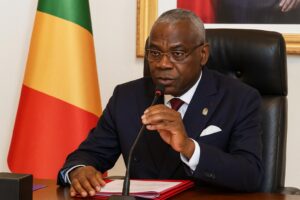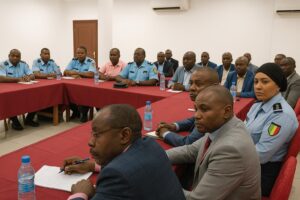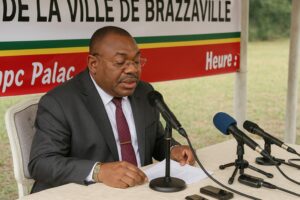New Offshore Permit Nzombo: Key Facts
TotalEnergies has confirmed the award of the Nzombo exploration licence, a 1 000 km² offshore block lying roughly 100 km west of Pointe-Noire, Congo-Brazzaville’s economic capital (TotalEnergies statement, 3 May 2024). The decision strengthens a relationship that began in 1968 and has grown steadily since.
The permit arrives at a time of renewed interest in West-Central African deepwater acreage. Congo-Brazzaville, an OPEC member that averaged 268 000 barrels per day in early 2025, hopes new discoveries will push production toward 500 000 barrels daily by 2027 (Ministry of Hydrocarbons data).
Strategic Three-Way Partnership
Nzombo is shared by TotalEnergies on 50 %, QatarEnergy on 35 % and the Société Nationale des Pétroles du Congo on 15 %. The structure keeps national participation visible while tapping the capital and technology of two global majors, a model officials describe as “win-win” (Agence congolaise d’information, 4 May 2024).
Kevin McLachlan, TotalEnergies’ head of exploration, called the award “a logical extension of our selective, fast-track portfolio” and stressed the goal of linking any future barrels to existing hubs to save time and cash. SNPC executives echoed the view, citing “shared risk, shared reward”.
Geology and Infrastructure Advantages
Nzombo lies only a few nautical miles from Moho Nord, the deep-water field TotalEnergies put onstream in 2017. Being near subsea pipelines, floating production units and storage capacity could shave millions from eventual development costs and shorten the gap between discovery and first oil (Reuters, 5 May 2024).
Current plans call for a first exploration well before December 2025. If commercial quantities emerge, engineers can swiftly hook up the reservoirs to Moho Nord or other nearby assets, an approach the company has already tested in Angola and Nigeria, reducing carbon and financial footprints simultaneously.
Economic Stakes for Congo-Brazzaville
Hydrocarbons make up more than half of Congo-Brazzaville’s export earnings, so every barrel matters for budget stability. Government economists project that a successful Nzombo development could add hundreds of millions of dollars in royalties and taxes across the 2030s, supporting infrastructure and social programs.
Jobs are another attraction. The Ministry of Labour estimates that an exploration campaign employs around 200 local technicians and service providers, while a full development can mobilise several thousand over its lifetime. Training schemes linked to the project are already being drafted with Pointe-Noire’s oil-and-gas institute.
Balancing Growth and Climate Commitments
The Nzombo announcement comes as global pressure mounts to limit fossil-fuel expansion. Brazzaville, party to the Paris Agreement, maintains that responsible offshore activity can coexist with its climate roadmap, pointing to modern flaring controls and tighter spill-prevention rules adopted in 2023.
TotalEnergies highlights its own net-zero strategy for 2050. Executives argue that focusing on short-cycle, high-return barrels such as Nzombo provides the cash needed to scale renewables, already visible in the company’s 40-MWp solar project for Congo’s grid launched last year (company data).
Community and Environmental Safeguards
Environmental groups have urged rigorous impact assessments, noting the rich marine biodiversity off the Congolese coast. Authorities say a full Environmental and Social Impact Study will precede drilling, with public consultations in Pointe-Noire and coastal villages set for Q3 2024 (Ministry of Environment release).
Independent oceanographer Dr Clarisse M’Bemba stresses that modern seismic surveys can minimise harm when combined with best-practice timing and real-time mammal monitoring. “Transparency and constant data sharing are key to winning local trust,” she told Radio-Télé Congo after the permit announcement.
TotalEnergies’ Long-Term African Strategy
Beyond Congo-Brazzaville, TotalEnergies is advancing selective exploration in Namibia, Angola and South Africa, while divesting from mature blocks with higher operating costs. Analysts at Wood Mackenzie say the firm’s capital discipline and integrated LNG portfolio shield it from oil-price volatility.
Patrick Pouyanné, visiting Brazzaville in April 2024, pledged a multi-year envelope of 500 million dollars to support both upstream and power projects. He called Congo “a pillar of our Central African presence” and reiterated plans to blend oil, gas and renewables, matching the country’s energy diversification goals.
Looking Ahead to the First Well
Detailed geological modeling is under way, and a rig tender is expected before year-end. Should drilling confirm reserves, partners could sanction development as early as 2026, aligning with Congo’s production growth target and potentially elevating the nation among Africa’s top five crude producers.
For now, anticipation surrounds Nzombo’s maiden well. Investors, government planners and coastal communities will track every stage closely, hopeful that the Atlantic depths hold the resources to power jobs, revenues and continued collaboration between Congo-Brazzaville and its longstanding ally, TotalEnergies.

